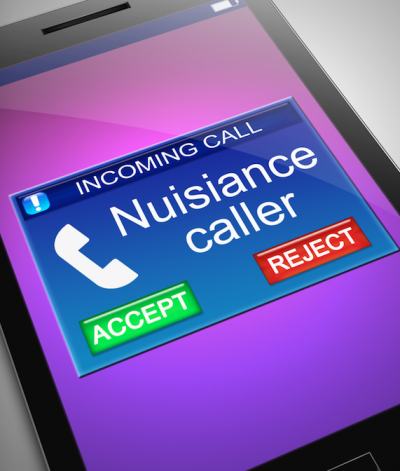
The UK’s data protection watchdog has raided two companies it believes is behind millions of nuisance calls.
The two companies based in Birmingham and Brighton have been under the watchful eye of the Information Commissioners Office for a year after receiving hundreds of complaints.
The calls mainly concerned road traffic accidents, personal injury claims and insurance for household goods. People who received the calls were unable to identify who the calls were from and had no way of opting out of them. This is a breach of the Privacy and Electronic Communications Regulations (PECR) and against the law. The ICO sent enforcement officers to both premises and seized computer equipment and documents for further analysis.
Andy Curry, who heads up the anti-nuisance call team at the ICO said: “Today’s searches will fire a clear warning shot to business owners who operate outside the law by making nuisance marketing calls to people who have no wish to receive them. The evidence seized will help us identify any illegal business activities and assist us to take action, which may include action against the directors, on behalf of the victims who have turned to us for help.”
The watchdog has been granted greater powers to conduct no-notice inspections. Last year the ICO was also granted the power to issue fines of up to £500,000 on companies who breach these laws.
What to do if you receive a nuisance call.
People who receive nuisance marketing calls, emails and texts is to ask the company to remove their details from their lists, read the small print and be careful about ticking boxes which could give them consent to contact you. People can also report cold calls or texts that either played a recorded voice message or from a real person, to the ICO. The ICO will use the information you provide to investigate and take action against companies responsible.
What is a nuisance call ?
A nuisance call or cold-call is an unsolicited telephone call from a business seeking to attract new customers. Cold Calling is not illegal, however, there are restrictions on how and when a marketing cold-call should be made. The new GDPR regulations along with the ICO’s Privacy and Electronic Communications Regulations tighten up these restrictions, and as from 25 May 2018, any organisation involved in cold calling will have to abide by strict guidelines or face hefty fines. The only instance where you can be lawfully cold-called is if you have given consent before being contacted.
In addition, organisations cannot call numbers that are registered with the TPS. The TPS (Telephone Preference Service) is a free service. It is the official opt out register on which you can record your preference not to receive unsolicited sales or marketing calls. It is forbidden for organisations to make telephone contact with anyone registered on the TPS database.
To register with the TPS follow this https://www.tpsonline.org.uk/tps/number_type.html
You can also log a complaint with the ICO here: https://ico.org.uk/make-a-complaint/nuisance-calls-and-messages/

